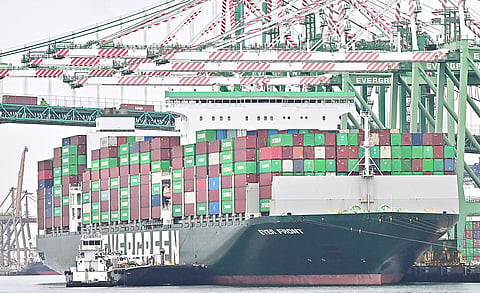
- NEWS
- the EDIT
- COMMENTARY
- BUSINESS
- LIFE
- SHOW
- ACTION
- GLOBAL GOALS
- SNAPS
- DYARYO TIRADA
- MORE

Most economists expect inflation for this year to average below 2 percent due to affordable food and fuels. However, a financial market analyst warns inflation could accelerate to 2.5 percent if US President Donald Trump pursues higher tariffs on US imports.
Analysts from global investment bank Citi forecast inflation to settle at 1.7 percent this year and 2.8 percent in the next, slightly lower than its previous estimate of 2.9 percent.
The outlooks indicate manageable prices as they remain within the 2 to 4 percent target band of the Bangko Sentral ng Pilipinas. However, they exceed the 1.4 percent inflation in June recorded by the Philippine Statistics Authority.
Citi expects rice prices to remain low due to improved supply from the reduction of rice tariffs before increasing in the fourth quarter of the year.
Bank of the Philippine Islands chief economist Jun Neri said the slower rice disinflation could push up overall inflation to 3 percent by November.
"We also expect steady or slightly higher inflation in services such as recreation and education," Citi analysts added.
However, analysts from Chinabank said poultry prices signal continued low inflation rates as local markets maintain enough supply from Brazil's exports.
"We expect inflation to remain manageable as long as Brent crude stays below $85 per barrel," Neri added.
Data from Bloomberg showed prices of Europe's Brent crude have declined by 0.73 percent to $68.30 per barrel since Israel and Iran agreed to a ceasefire. Iran attacked Israel on 13 June, triggering retaliatory missile bombings for 12 days.
Given the brief rice inflation but manageable oil prices, Security Bank chief economist Angelo Taningco projects full-year inflation to hit 1.9 percent.
Inflationary threats
Jonathan Ravelas, senior adviser of financial consulting firm Reyes Tacandong & Co., said inflation this year could reach 2.5 percent if US President Donald Trump insists higher tariffs on US imports. "This could bring secondary inflation risks and currency volatility," he said.
Economists warned US firms could face high retaliatory tariffs from the world's major manufacturing economies, leading to higher global inflation. The White House is expected to implement Trump's tariffs on 10 July, after a 90-day pause.
"There’s a risk that tariffs have not been fully passed on to consumers as many US companies imported heavily before April to cushion the impact," Neri said.
Neri added that imported goods might become pricier as the peso depreciates against the US dollar, following a possible higher demand for the foreign currency as a safe haven amid inflationary risks and an elevated policy rate by the Federal Reserve (Fed).
"If inflation in the US picks up, the Fed may delay the rate cuts, which could weaken the peso and limit the Bangko Sentral ng Pilipinas' room to maneuver," he said.
According to the United Nations Commodity Trade Statistics Database, the Philippines imported goods from the US amounting to $8.85 billion last year, although lower than the $9.3 billion in 2023.
Short-term, lower interest rates
Under a relatively stable global economy, Citi still expects the Philippine central bank to cut its policy rate in August and October this year and in February 2026 by 25 basis points each. This will bring down the rate from 5.25 percent to 4.5 percent.
Citi said businesses might keep prices low in the near term amid weak demand for goods and services among local and foreign consumers.
"Downside inflation risks come amid further signs of slowdown in external and domestic demand for goods and services. Philippine electronics exports continued to lag ASEAN peers," Citi said.
"But emerging risks to inflation need to be monitored, alongside the impact of prior policy adjustments," the bank's analysts added.
